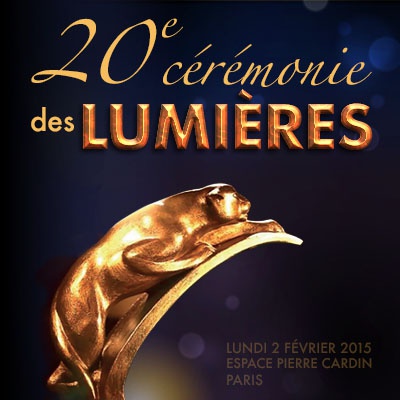 Penghargaan Lumières ke-20
Penghargaan Lumières ke-20 Foreign press rewards French cinema
What does foreign press think of French cinema? On February 2nd, correspondents from all over the world publicly revealed their prize list for the 20th Lumières awards. "Timbuktu", from filmmaker Abderrahmane Sissako, is one of the stars.
"Timbuktu", first political film based on real facts
The winner of the ceremony is a film at the crossroad of several cultures: awarded best film and best director, "Timbuktu" relates the everyday life in the Malian eponymous city, which fell in the hands of islamists in 2012. Mauritanian filmmaker Abderrahmane Sissako directed the film: in this movie both horrific and touching, he focuses on the liberty that ordinary people manage to keep in an oppressive context. This is the key of one of the most poetic and funny scene of the film: since playing football is forbidden, teenagers play by miming the ball.
A French producer, Sylvie Pialat, supported the project. Her collaboration with Sissako revealed to be a winning hand: after the Lumière Award, the film has just been selected in the Foreign language film category of the Oscars.
A photograph of French film in 2014
The list of awards gives an overview of the diversity of French cinema and its economy, where mainstream films play along with more restricted productions.
"Serial (Bad) Weddings" (Qu'est-ce qu'on a fait au bon Dieu ?), from Philippe de Chauveron, won the best scenario award. The comedy starring Christian Clavier has been a big success, and attracted over 12 million viewers last summer.
But the film list also favours independent cinema: "Love at first fight" (Les Combattants) from Thomas Cailley or "Girlhood" (Bande de filles) from Céline Sciamma were released without any star playing in it. Both films offer the particular vision of two filmmakers among the most gifted of their (young) generation. Both stage powerful feminine characters who liberate themselves from class and gender codes in a beautiful momentum of freedom: Madeleine, the hero from "Love at first fight" drags her boyfriend in a military survival training, and Céline Sciamma follows Marieme, a teenager who tries to emancipate, even if it means by hazardous means.
